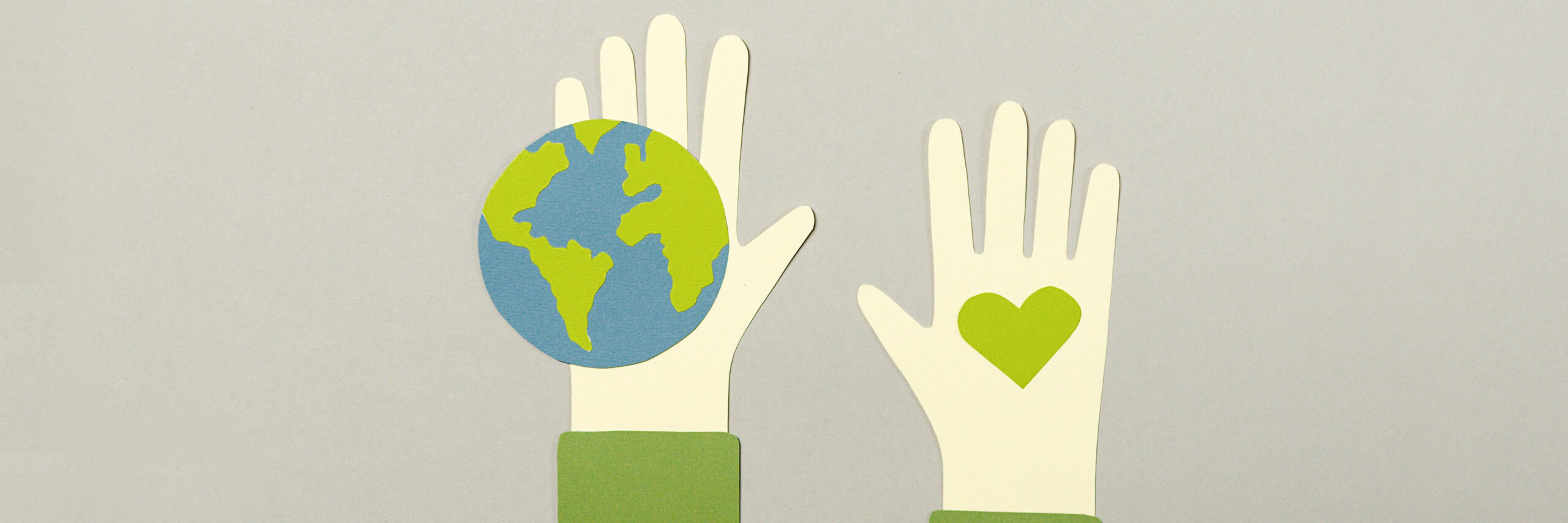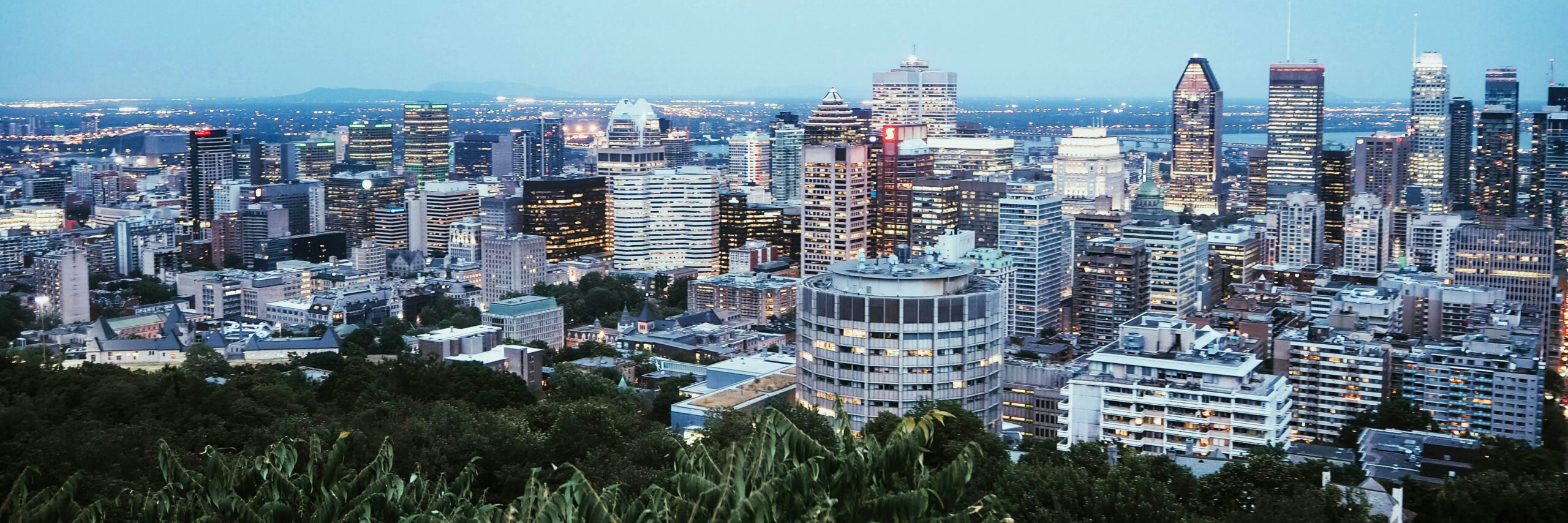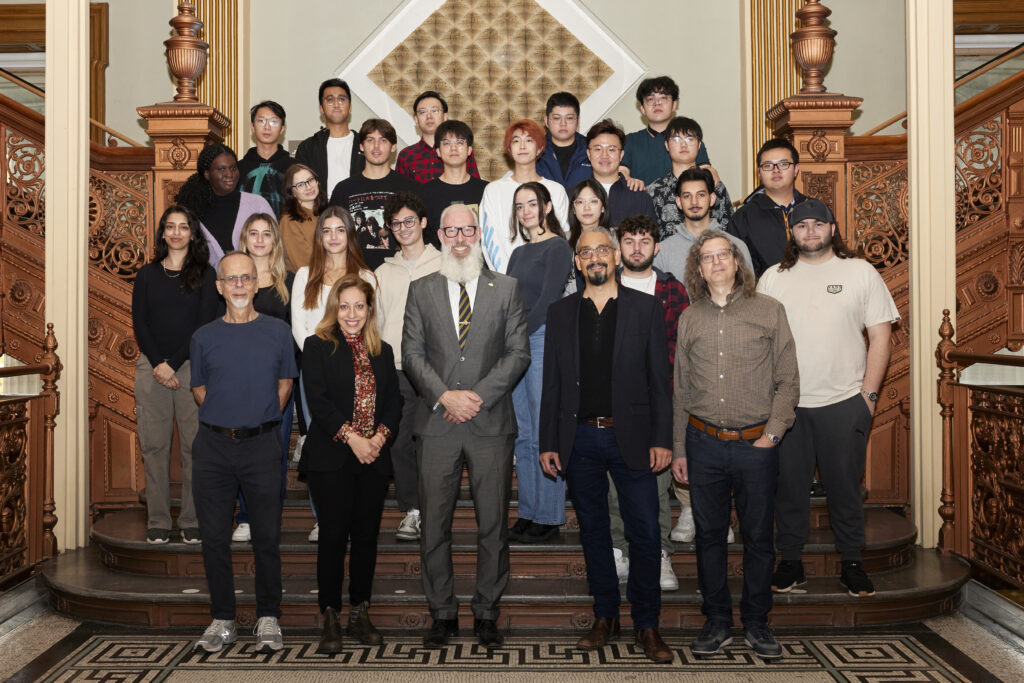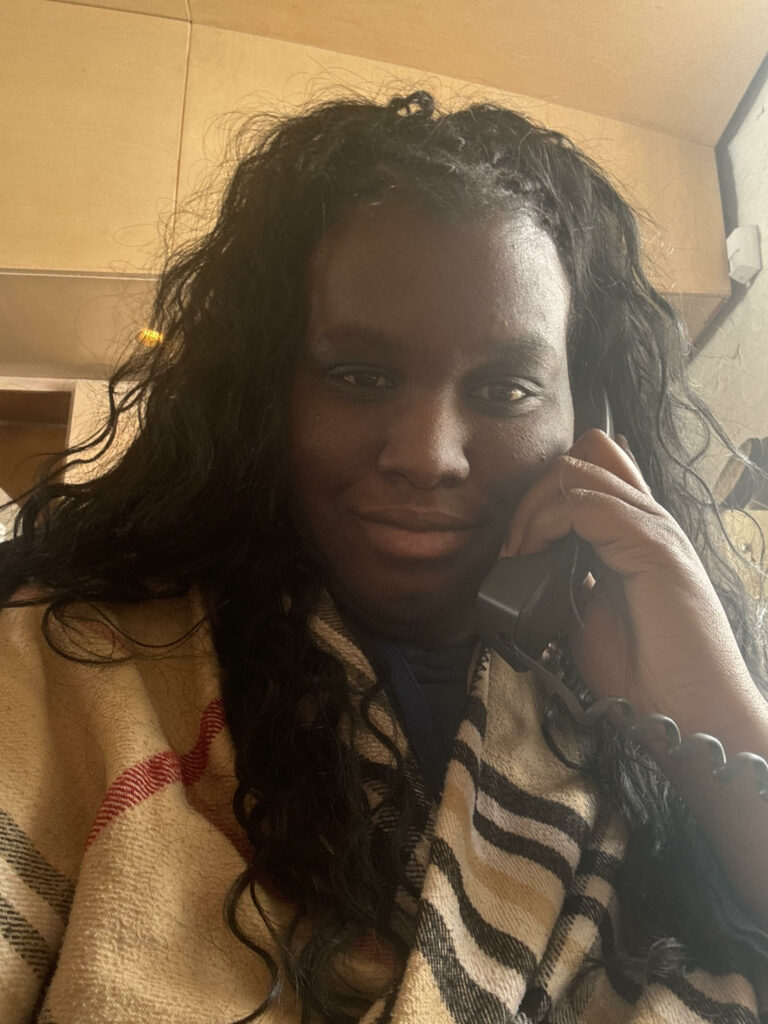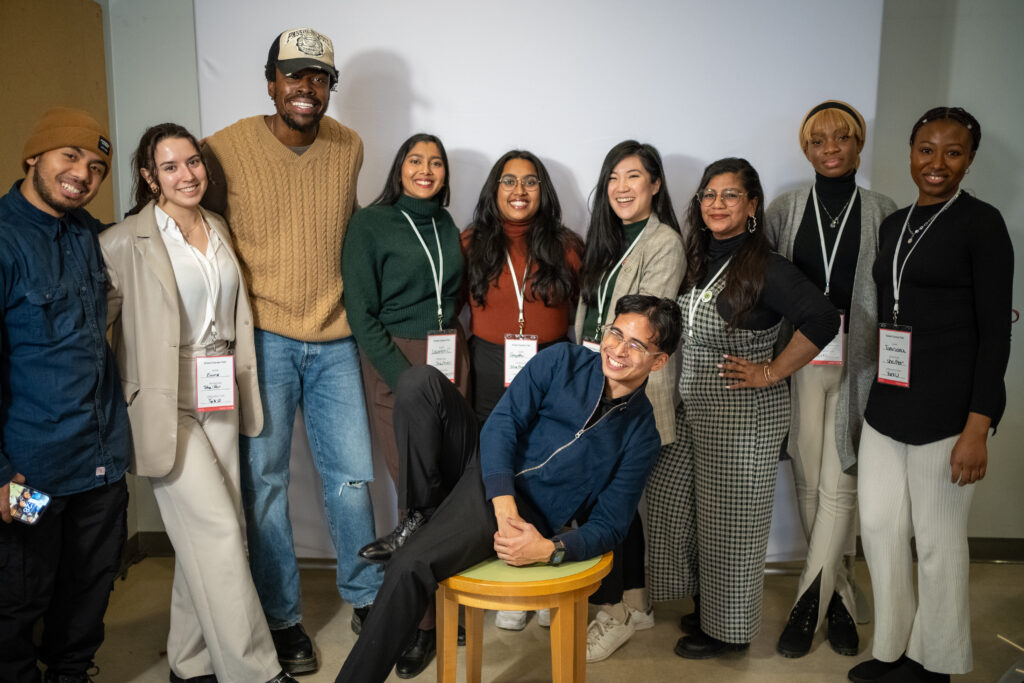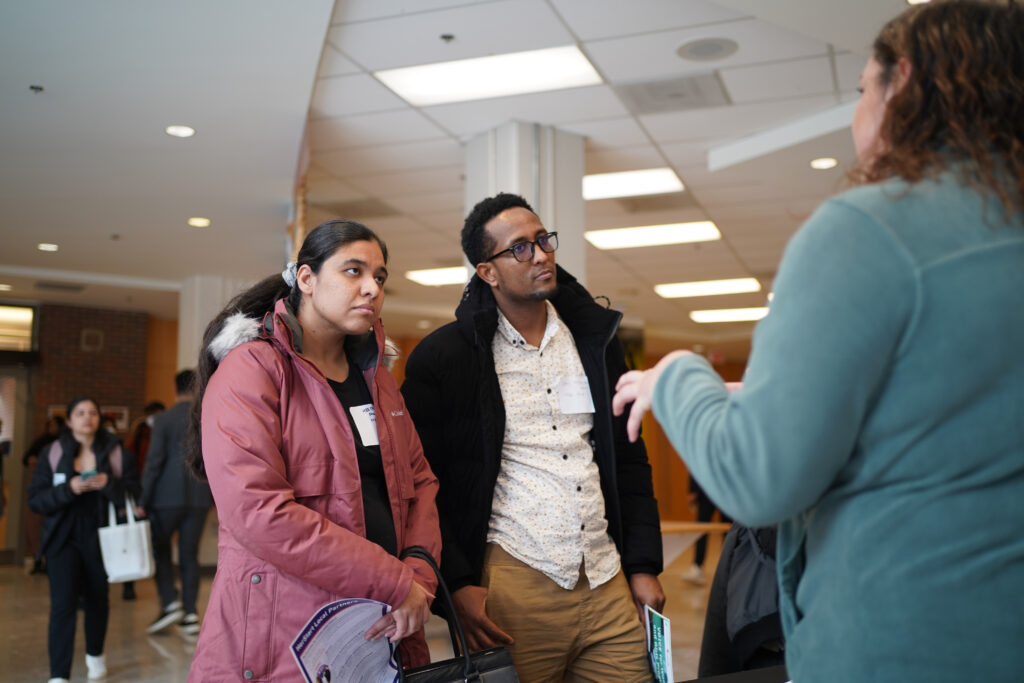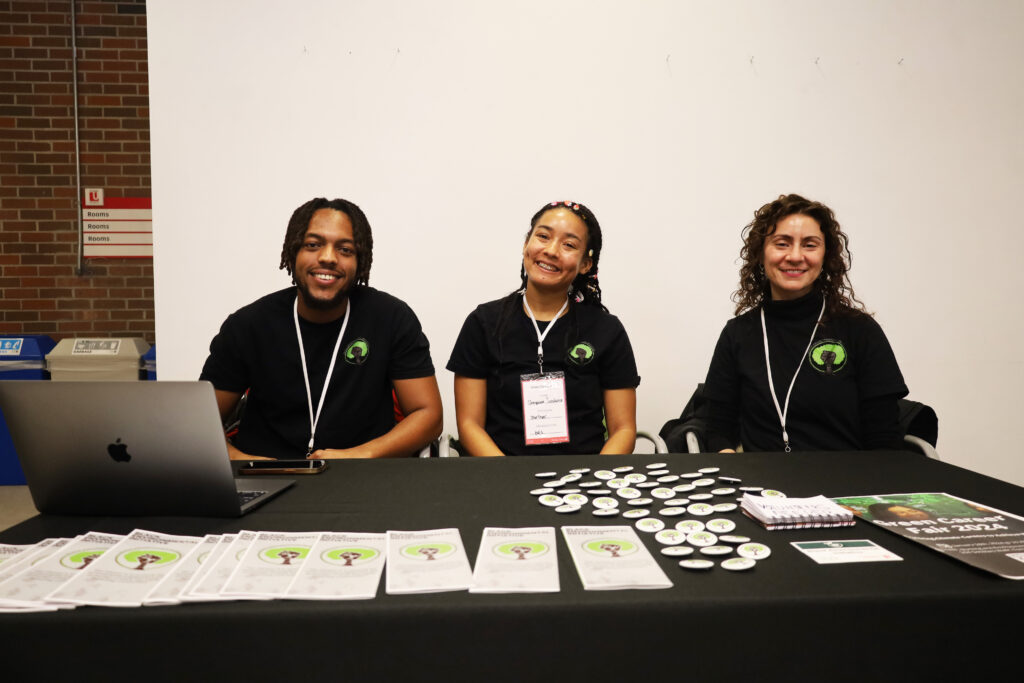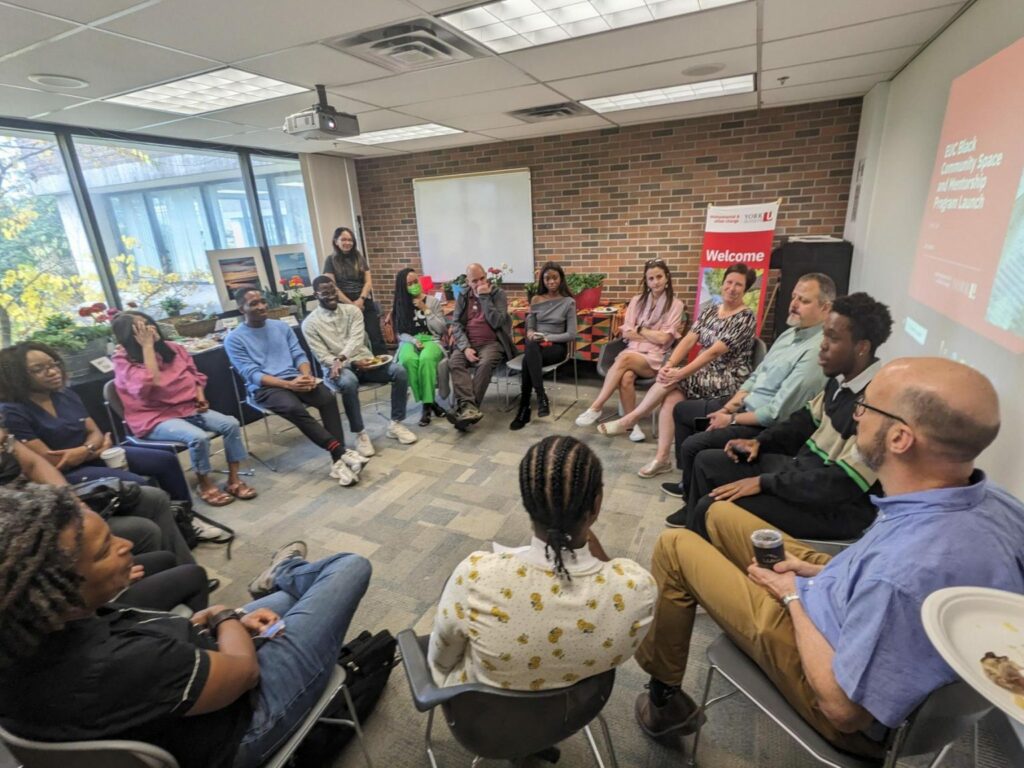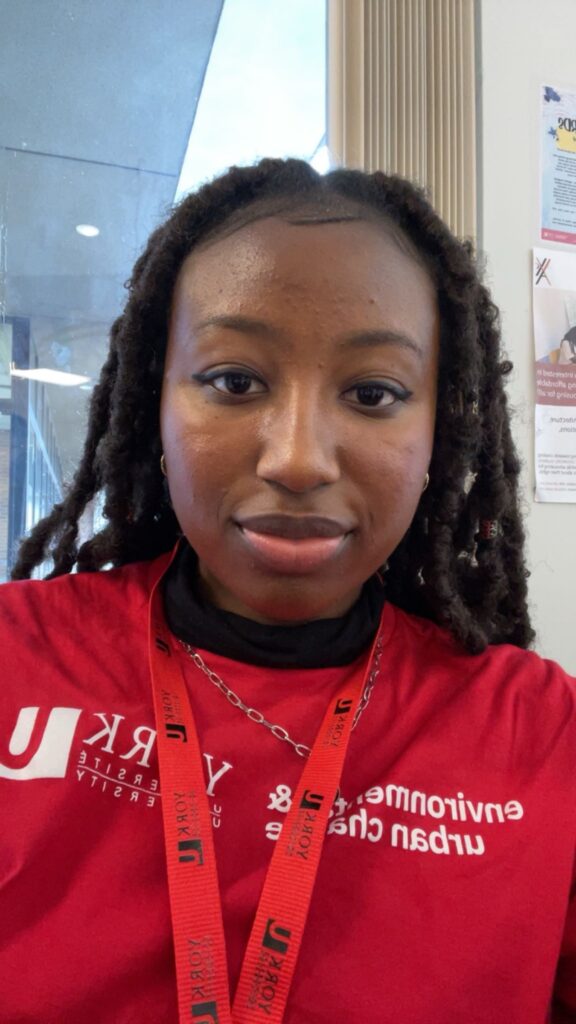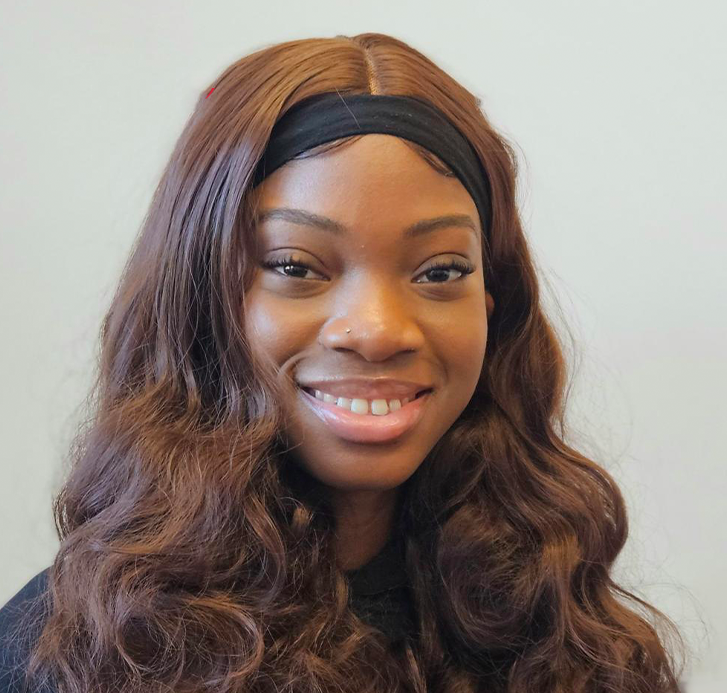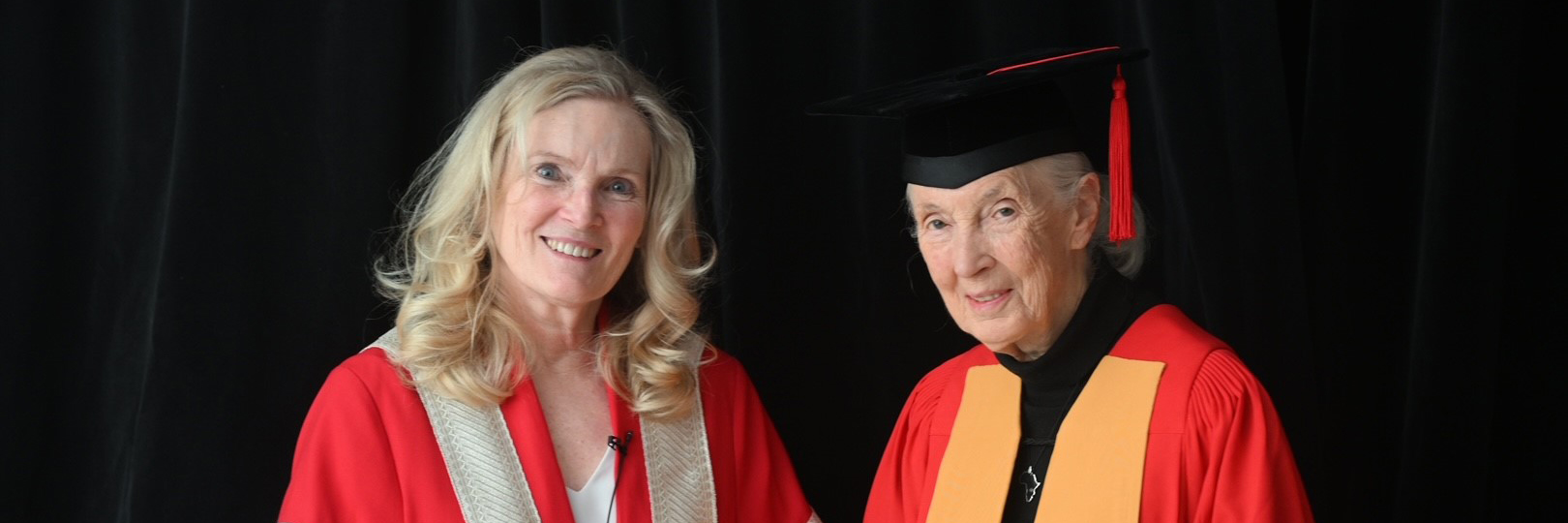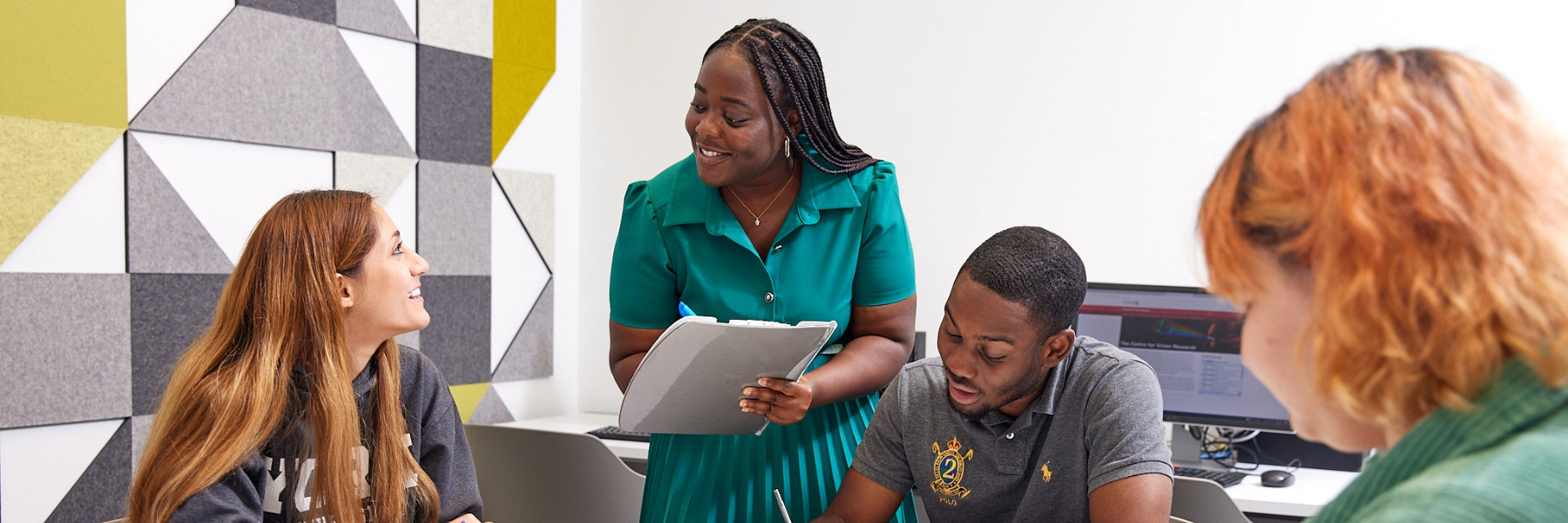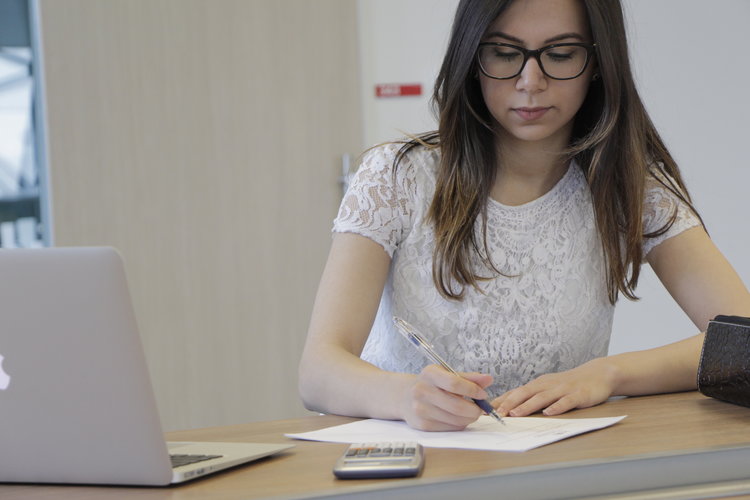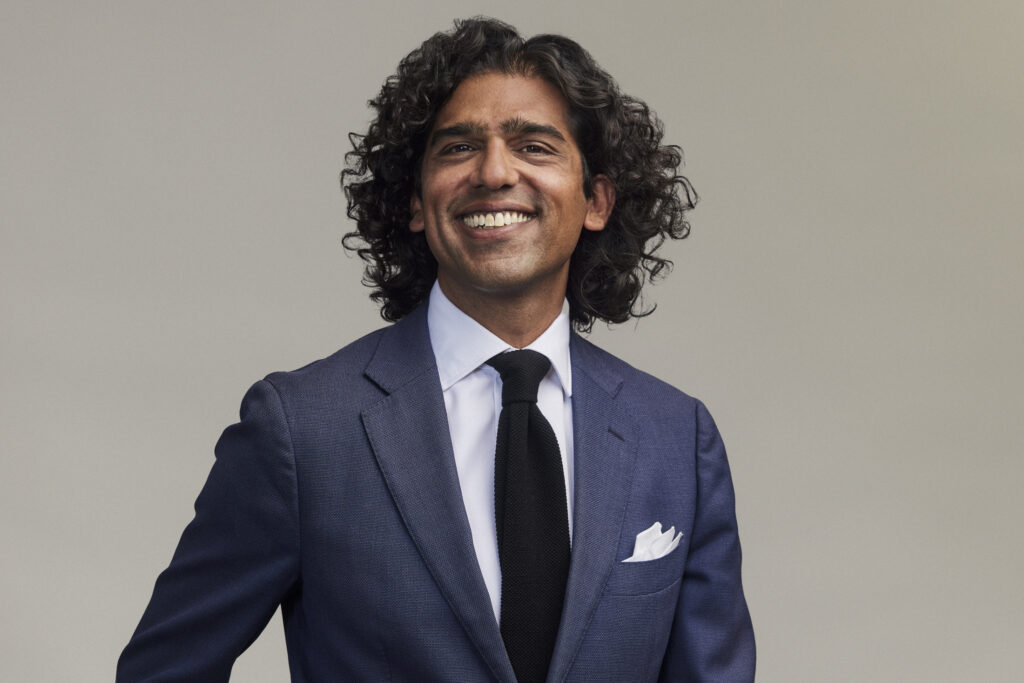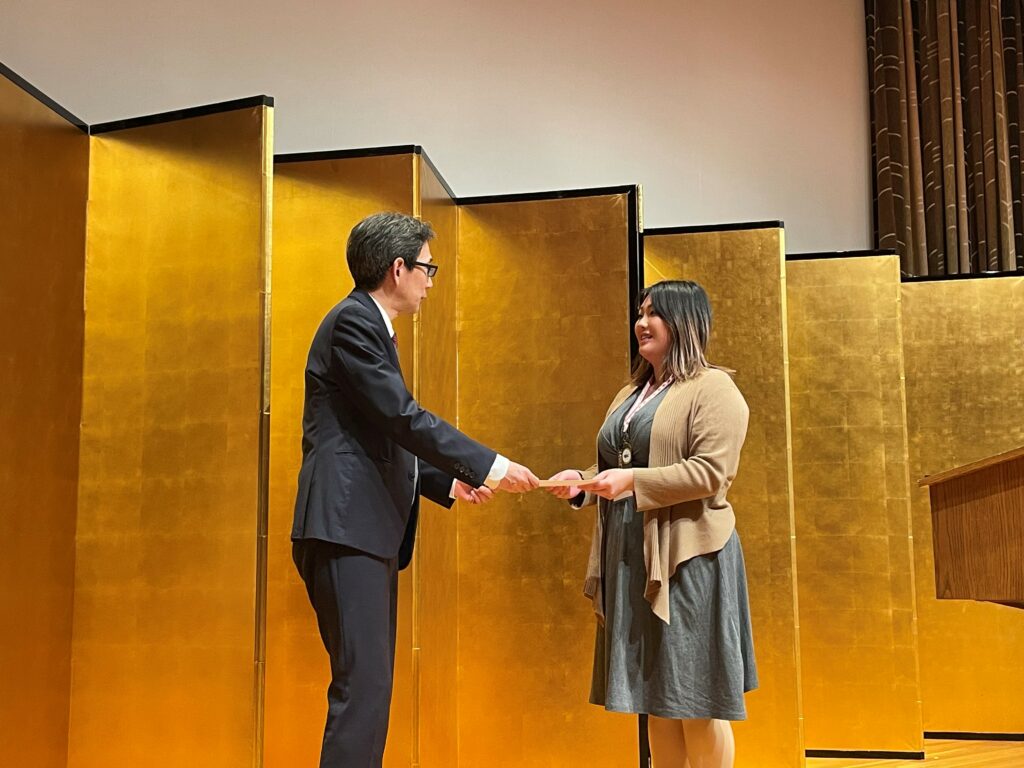A banana fish is set to be one of the hits of the 2024 Eco Arts Festival, an annual explosion of artistic talent organized by the students in the Environmental Arts and Justice (EAJ) program in York University’s Faculty of Environmental & Urban Change (EUC), which marks its 30th anniversary this year.
The Eco Arts Festival is an environmental initiative where art is a catalyst for ecological change and a way to highlight the intersection of art and the environment in the EAJ program. It takes over the lobby and two exhibit spaces – Zig-Zag and Crossroads – in the Health, Nursing & Environmental Studies Building, displaying visual arts and offering performances and readings.
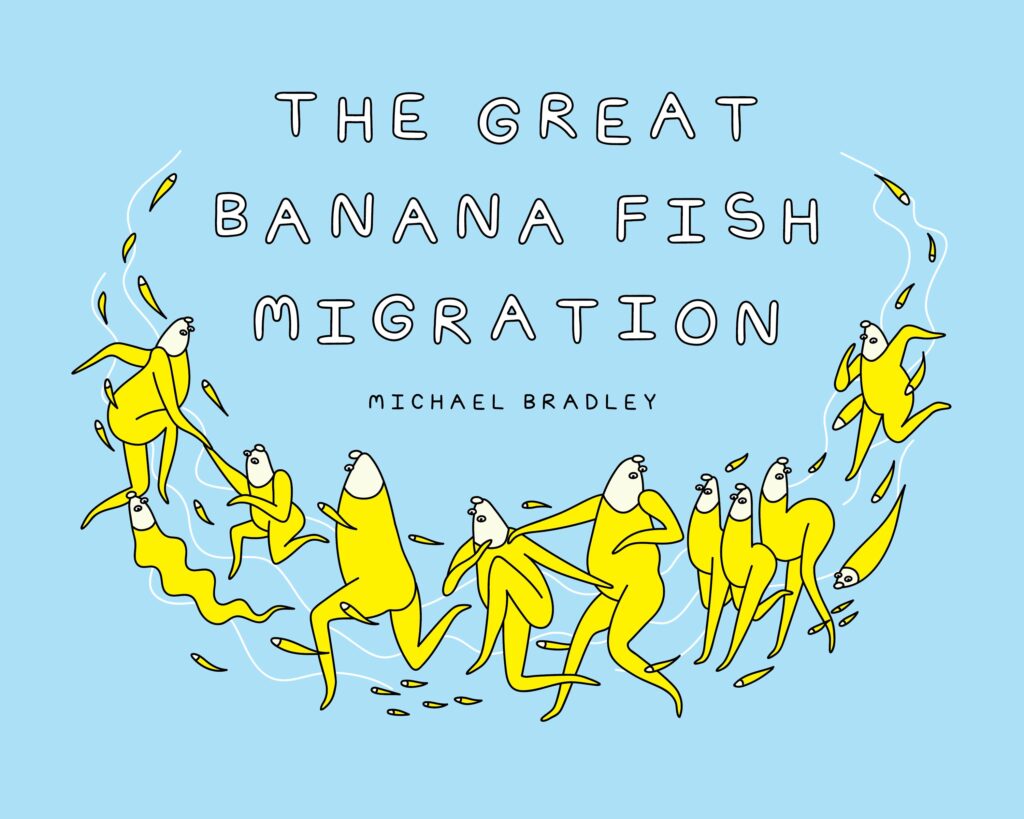
The banana fish, an organically shaped yellow creature, is the star of visual artist and an EUC master’s degree student Michael Bradley’s illustrated book, The Great Banana Fish Migration, a tale that he’ll be reading aloud at the festival later this year.
This mythical creature fits well with this year’s theme, Beast Friends Forever, a title conceived by festival co-ordinator and EUC doctoral student Giuliana Racco and inspired by Professor Andil Gosine’s research into animal-human interactions and species loss. Gosine is an artist and curator who is the EAJ program co-ordinator.
“Arts are a place for the students to contend with their anxiety about what is happening in the world, and to think about how we might respond to the crisis we face,” Gosine says.
Many of the student-artists displaying their work in the festival were enrolled in one or both of Gosine’s two EUC summer courses: Environmental Arts Workshop (for undergraduates) and Cultural Production: Image (for graduate students). These three-week intensive courses are akin to “an arts residency,” says Gosine, who brings artists to class and encourages the students to take their research and passion for environmental issues and translate them in a way that challenges them to explore their creative instincts.
A similar fourth-year course in the undergraduate EAJ program, Arts in Action, brings together both undergraduate and graduate students to realize the project they have been dreaming up.
“Fourth-year undergrads and first-year master’s students use the course to deeply explore their interests, with dedicated attention to each of their projects,” Gosine explains. “It’s a rare opportunity to move from research on an environmental concern to exhibition of an artwork that might stimulate conversation and action.”
As for the undergraduate EAJ program, Gosine considers it unique; he accepted a teaching position at York to be part of it.
“It’s rare to have such a confluence of learning styles,” he says. “We are allowed to have an interdisciplinary approach. Here, you can be both an artist and a social scientist.”
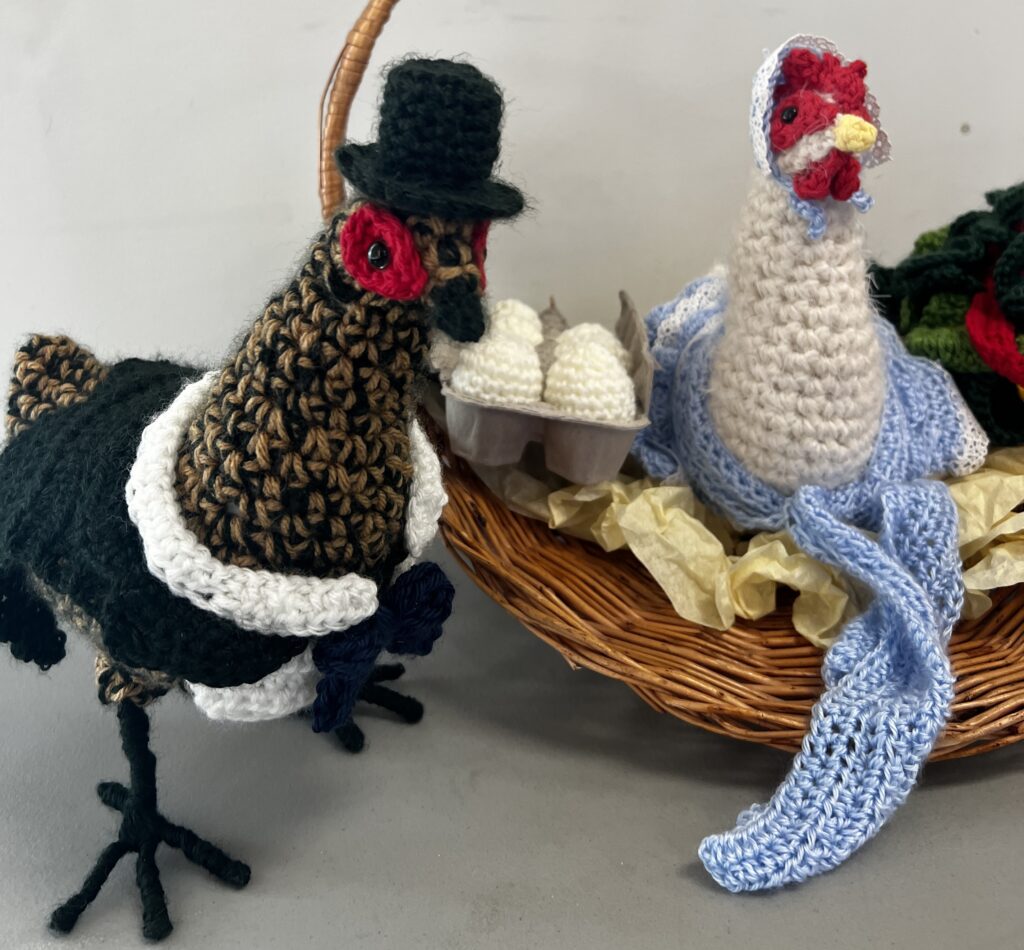
Among the art that festival attendees will see are Tess Thompson-van Dam’s crocheted chicken sculptures harking back to Victorian times when the elites brought chickens to tea parties; drawings by Andrew Carenza that reinterpret horses pictured in historical European paintings through a contemporary, Queer lens; work on historical and contemporary ideas of Eden; and the travelling banana fish. Bradley’s reading of The Great Banana Fish Migration and an Eco Arts collaborative workshop offer participatory opportunities.
Bradley, an Ottawa Valley native, had a thriving art practice in Taiwan but returned to Canada for master’s studies. He has been drawing banana fish daily since 2018 and creating stories about them. The current book talks about the fish’s journey to find its place in the world and how that might always be changing.
“I’m not commenting on the politics of migration in a direct way, but when people migrate they have a confused sense of place. I hope people can relate,” he says. “There are a lot of ways that art and environmental science can intersect,” Bradley adds. “I’m not a politician or a policymaker, but artists, creators and curators are part of the cultural community, so if the environment requires a cultural shift, artists are the best people to usher in this change.”
Bradley’s work, and the Eco Arts Festival, will have that on full display.


